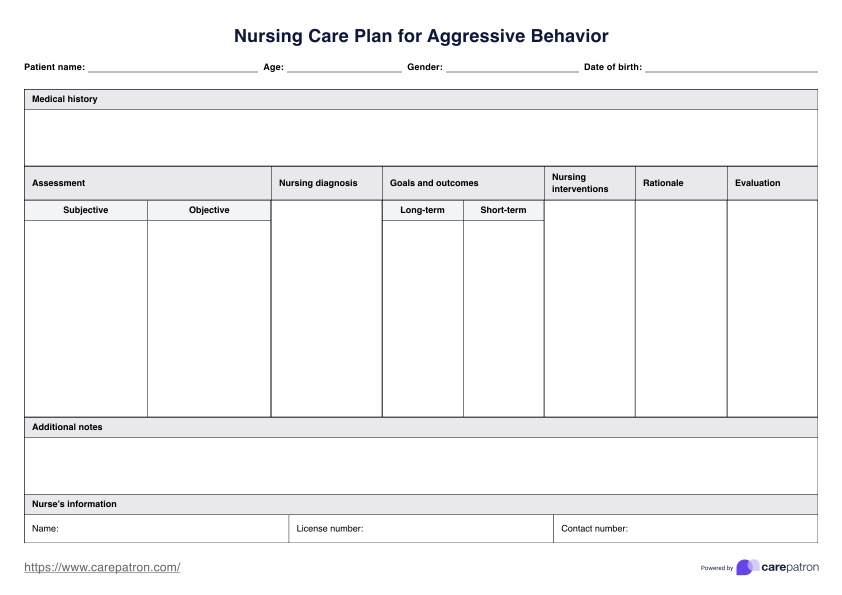The Nursing Care Plan for Aggressive Behavior involves a thorough assessment of triggers for criminal and violent behavior, implementing safety measures, teaching coping skills, and promoting communication to manage aggression effectively.

Nursing Care Plan for Aggressive Behavior
Use this Nursing Care Plan for Aggressive Behavior to identify triggers, reduce harm, and provide structured care for safer, supportive patient interactions.
Nursing Care Plan for Aggressive Behavior Template
Commonly asked questions
Nursing an aggressive patient involves establishing a therapeutic relationship, using de-escalation techniques for verbal aggression and physical harm, providing a safe environment, and implementing behavioral interventions tailored to the individual's needs.
Nursing interventions for anger patients include teaching relaxation techniques, promoting effective communication, identifying triggers, implementing environmental modifications, a treatment regimen using positive feedback, and monitoring progress.
EHR and practice management software
Get started for free
*No credit card required
Free
$0/usd
Unlimited clients
Telehealth
1GB of storage
Client portal text
Automated billing and online payments











